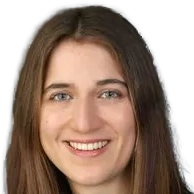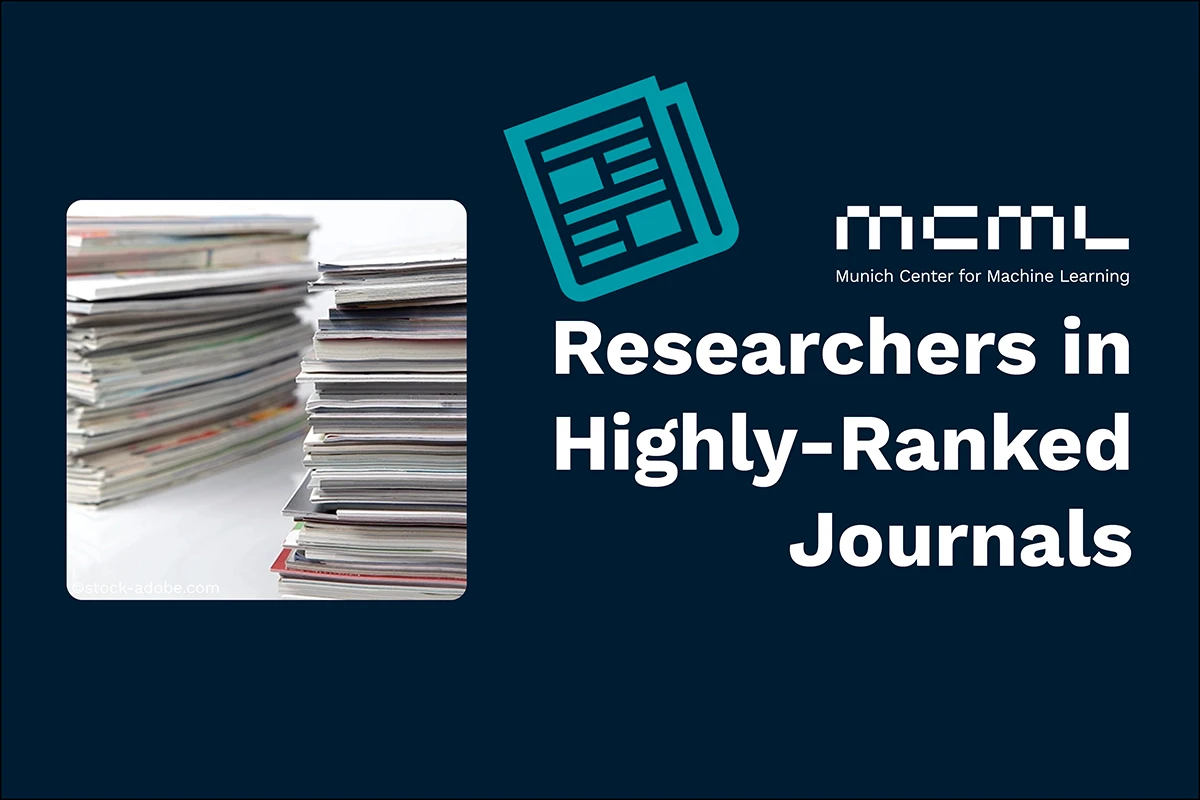Research Group Felix Krahmer
Felix Krahmer
is Assistant Professor of Optimization & Data Analysis at TU Munich.
His research focuses on the mathematical foundations of signal and image processing. In particular, his research agenda covers randomized sensing methods, especially in compressed sensing, dimension reduction, and analog to digital conversion. His research involves not only the theoretical analysis of such methods but also their application, such as in a project on the non-destructive testing of steel pipes.
Team members @MCML
PostDocs
PhD Students
Recent News @MCML
Publications @MCML
2026
[26]

X. Jian • P. Zhang • L. Tian • F. Ji • W. Liang • W. P. Tay • B. Wen • F. Krahmer
Conformal Prediction for Multi-Source Detection on a Network.
AAAI 2026 - 40th Conference on Artificial Intelligence. Singapore, Jan 20-27, 2026. To be published. Preprint available. arXiv
Conformal Prediction for Multi-Source Detection on a Network.
AAAI 2026 - 40th Conference on Artificial Intelligence. Singapore, Jan 20-27, 2026. To be published. Preprint available. arXiv
2025
[25]
S. Bamberger • R. Heckel • F. Krahmer
Approximating Positive Homogeneous Functions with Scale Invariant Neural Networks.
Journal of Approximation Theory 311.106177. Nov. 2025. DOI
Approximating Positive Homogeneous Functions with Scale Invariant Neural Networks.
Journal of Approximation Theory 311.106177. Nov. 2025. DOI
[24]
F. Krahmer • F. Pagginelli Patricio • P. Catala
On a Recovery Method with Approximation Guarantees for Noisy Unlimited Sampling.
SampTA 2025 - 15th International Conference on Sampling Theory and Applications. Vienna, Austria, Jul 28-Aug 01, 2025. Invited talk. URL
On a Recovery Method with Approximation Guarantees for Noisy Unlimited Sampling.
SampTA 2025 - 15th International Conference on Sampling Theory and Applications. Vienna, Austria, Jul 28-Aug 01, 2025. Invited talk. URL
[23]

S. Karnik • A. Veselovska • M. Iwen • F. Krahmer
Implicit Regularization for Tubal Tensor Factorizations via Gradient Descent.
ICML 2025 - 42nd International Conference on Machine Learning. Vancouver, Canada, Jul 13-19, 2025. URL
Implicit Regularization for Tubal Tensor Factorizations via Gradient Descent.
ICML 2025 - 42nd International Conference on Machine Learning. Vancouver, Canada, Jul 13-19, 2025. URL
[22]
F. P. Patricio • F. Krahmer • P. Catala
Stable Retrieval for Unlimited Sampling via Adaptive Local Representations.
SSP 2025 - IEEE Statistical Signal Processing Workshop. Edinburgh, Scotland, Jun 08-11, 2025. DOI
Stable Retrieval for Unlimited Sampling via Adaptive Local Representations.
SSP 2025 - IEEE Statistical Signal Processing Workshop. Edinburgh, Scotland, Jun 08-11, 2025. DOI
[21]

J. Kostin • F. Krahmer • D. Stöger
How robust is randomized blind deconvolution via nuclear norm minimization against adversarial noise?
Applied and Computational Harmonic Analysis 76.101746. Apr. 2025. DOI
How robust is randomized blind deconvolution via nuclear norm minimization against adversarial noise?
Applied and Computational Harmonic Analysis 76.101746. Apr. 2025. DOI
[20]
F. Krahmer • A. Veselovska
The mathematics of dots and pixels: On the theoretical foundations of image halftoning.
GAMM Mitteilungen 48.1. Mar. 2025. DOI
The mathematics of dots and pixels: On the theoretical foundations of image halftoning.
GAMM Mitteilungen 48.1. Mar. 2025. DOI
[19]
M. Herold • J. S. Jehle • F. Krahmer • A. Veselovska
Non-intrusive surrogate modelling using sparse random features with applications in crashworthiness analysis.
International Journal for Uncertainty Quantification 15.4. Mar. 2025. DOI
Non-intrusive surrogate modelling using sparse random features with applications in crashworthiness analysis.
International Journal for Uncertainty Quantification 15.4. Mar. 2025. DOI
[18]
H. Laus • S. Parkinson • V. Charisopoulos • F. Krahmer • R. Willett
Solving Inverse Problems with Deep Linear Neural Networks: Global Convergence Guarantees for Gradient Descent with Weight Decay.
Preprint (Feb. 2025). arXiv
Solving Inverse Problems with Deep Linear Neural Networks: Global Convergence Guarantees for Gradient Descent with Weight Decay.
Preprint (Feb. 2025). arXiv
2024
[17]

F. Hoppe • C. M. Verdun • H. Laus • F. Krahmer • H. Rauhut
Non-Asymptotic Uncertainty Quantification in High-Dimensional Learning.
NeurIPS 2024 - 38th Conference on Neural Information Processing Systems. Vancouver, Canada, Dec 10-15, 2024. URL
Non-Asymptotic Uncertainty Quantification in High-Dimensional Learning.
NeurIPS 2024 - 38th Conference on Neural Information Processing Systems. Vancouver, Canada, Dec 10-15, 2024. URL
[16]

F. Hoppe • C. M. Verdun • H. Laus • S. Endt • M. I. Menzel • F. Krahmer • H. Rauhut
Imaging with Confidence: Uncertainty Quantification for High-dimensional Undersampled MR Images.
ECCV 2024 - 18th European Conference on Computer Vision. Milano, Italy, Sep 29-Oct 04, 2024. DOI GitHub
Imaging with Confidence: Uncertainty Quantification for High-dimensional Undersampled MR Images.
ECCV 2024 - 18th European Conference on Computer Vision. Milano, Italy, Sep 29-Oct 04, 2024. DOI GitHub
[15]
F. Hoppe • C. M. Verdun • F. Krahmer • M. I. Menzel • H. Rauhut
With or Without Replacement? Improving Confidence in Fourier Imaging.
CoSeRa 2024 - International Workshop on the Theory of Computational Sensing and its Applications to Radar, Multimodal Sensing and Imaging. Santiago de Compostela, Spain, Sep 18-20, 2024. DOI
With or Without Replacement? Improving Confidence in Fourier Imaging.
CoSeRa 2024 - International Workshop on the Theory of Computational Sensing and its Applications to Radar, Multimodal Sensing and Imaging. Santiago de Compostela, Spain, Sep 18-20, 2024. DOI
[14]
F. P. Patricio • P. Catala • F. Krahmer
Noisy Recovery in Unlimited Sampling via Adaptive Modulo Representations.
CoSeRa 2024 - International Workshop on the Theory of Computational Sensing and its Applications to Radar, Multimodal Sensing and Imaging. Santiago de Compostela, Spain, Sep 18-20, 2024. DOI
Noisy Recovery in Unlimited Sampling via Adaptive Modulo Representations.
CoSeRa 2024 - International Workshop on the Theory of Computational Sensing and its Applications to Radar, Multimodal Sensing and Imaging. Santiago de Compostela, Spain, Sep 18-20, 2024. DOI
[13]
P. Römer • F. Krahmer
A one-bit quantization approach for low-dose Poisson phase retrieval.
CoSeRa 2024 - International Workshop on the Theory of Computational Sensing and its Applications to Radar, Multimodal Sensing and Imaging. Santiago de Compostela, Spain, Sep 18-20, 2024. DOI
A one-bit quantization approach for low-dose Poisson phase retrieval.
CoSeRa 2024 - International Workshop on the Theory of Computational Sensing and its Applications to Radar, Multimodal Sensing and Imaging. Santiago de Compostela, Spain, Sep 18-20, 2024. DOI
[12]

C. M. Verdun • O. Melnyk • F. Krahmer • P. Jung
Fast, blind, and accurate: Tuning-free sparse regression with global linear convergence.
COLT 2024 - 37th Annual Conference on Learning Theory. Edmonton, Canada, Jun 30-Jul 03, 2024. URL
Fast, blind, and accurate: Tuning-free sparse regression with global linear convergence.
COLT 2024 - 37th Annual Conference on Learning Theory. Edmonton, Canada, Jun 30-Jul 03, 2024. URL
2023
[11]
F. Hoppe • C. M. Verdun • H. Laus • F. Krahmer • H. Rauhut
Uncertainty Quantification For Learned ISTA.
MLSP 2023 - IEEE Workshop on Machine Learning for Signal Processing. Rome, Italy, Sep 17-20, 2023. DOI
Uncertainty Quantification For Learned ISTA.
MLSP 2023 - IEEE Workshop on Machine Learning for Signal Processing. Rome, Italy, Sep 17-20, 2023. DOI
[10]
F. Hoppe • F. Krahmer • C. M. Verdun • M. I. Menzel • H. Rauhut
Uncertainty quantification for sparse Fourier recovery.
Preprint (Sep. 2023). arXiv
Uncertainty quantification for sparse Fourier recovery.
Preprint (Sep. 2023). arXiv
[9]
S. Endt • M. Engel • E. Naldi • R. Assereto • M. Molendowska • L. Mueller • C. M. Verdun • C. M. Pirkl • M. Palombo • D. K. Jones • M. I. Menzel
In vivo myelin water quantification using diffusion--relaxation correlation MRI: A comparison of 1D and 2D methods.
Applied Magnetic Resonance 54. Aug. 2023. DOI
In vivo myelin water quantification using diffusion--relaxation correlation MRI: A comparison of 1D and 2D methods.
Applied Magnetic Resonance 54. Aug. 2023. DOI
[8]
T. Fuchs • F. Krahmer • R. Kueng
Greedy-type sparse recovery from heavy-tailed measurements.
SampTA 2023 - 14th International Conference on Sampling Theory and Applications. Yale, CT, USA, Jul 10-14, 2023. DOI
Greedy-type sparse recovery from heavy-tailed measurements.
SampTA 2023 - 14th International Conference on Sampling Theory and Applications. Yale, CT, USA, Jul 10-14, 2023. DOI
[7]
F. Hoppe • F. Krahmer • C. M. Verdun • M. I. Menzel • H. Rauhut
Sampling Strategies for Compressive Imaging Under Statistical Noise.
SampTA 2023 - 14th International Conference on Sampling Theory and Applications. Yale, CT, USA, Jul 10-14, 2023. DOI
Sampling Strategies for Compressive Imaging Under Statistical Noise.
SampTA 2023 - 14th International Conference on Sampling Theory and Applications. Yale, CT, USA, Jul 10-14, 2023. DOI
[6]
R. Joy • F. Krahmer • A. Lupoli • R. Ramakrishan
Quantization of Bandlimited Functions Using Random Samples.
SampTA 2023 - 14th International Conference on Sampling Theory and Applications. Yale, CT, USA, Jul 10-14, 2023. DOI
Quantization of Bandlimited Functions Using Random Samples.
SampTA 2023 - 14th International Conference on Sampling Theory and Applications. Yale, CT, USA, Jul 10-14, 2023. DOI
[5]
F. Krahmer • H. Lyu • R. Saab • A. Veselovska • R. Wang
Quantization of Bandlimited Graph Signals.
SampTA 2023 - 14th International Conference on Sampling Theory and Applications. Yale, CT, USA, Jul 10-14, 2023. DOI
Quantization of Bandlimited Graph Signals.
SampTA 2023 - 14th International Conference on Sampling Theory and Applications. Yale, CT, USA, Jul 10-14, 2023. DOI
[4]
F. Krahmer • A. Veselovska
Digital Halftoning via Mixed-Order Weighted Σ∆ Modulation.
SampTA 2023 - 14th International Conference on Sampling Theory and Applications. Yale, CT, USA, Jul 10-14, 2023. DOI
Digital Halftoning via Mixed-Order Weighted Σ∆ Modulation.
SampTA 2023 - 14th International Conference on Sampling Theory and Applications. Yale, CT, USA, Jul 10-14, 2023. DOI
[3]

F. Krahmer • A. Veselovska
Enhanced Digital Halftoning via Weighted Sigma-Delta Modulation.
SIAM Journal on Imaging Sciences 16.3. Jul. 2023. DOI
Enhanced Digital Halftoning via Weighted Sigma-Delta Modulation.
SIAM Journal on Imaging Sciences 16.3. Jul. 2023. DOI
2022
[2]
C. M. Verdun
Scalability in Ill-posed Machine Learning Problems: Bridging Least Squares Methods with (Non-)convex Algorithms.
Dissertation TU München. Dec. 2022. URL
Scalability in Ill-posed Machine Learning Problems: Bridging Least Squares Methods with (Non-)convex Algorithms.
Dissertation TU München. Dec. 2022. URL
2021
[1]

C. M. Verdun • T. Fuchs • P. Harar • D. Elbrächter • D. S. Fischer • J. Berner • P. Grohs • F. J. Theis • F. Krahmer
Group Testing for SARS-CoV-2 Allows for Up to 10-Fold Efficiency Increase Across Realistic Scenarios and Testing Strategies.
Frontiers in Public Health 9. Aug. 2021. DOI
Group Testing for SARS-CoV-2 Allows for Up to 10-Fold Efficiency Increase Across Realistic Scenarios and Testing Strategies.
Frontiers in Public Health 9. Aug. 2021. DOI
©all images: LMU | TUM






